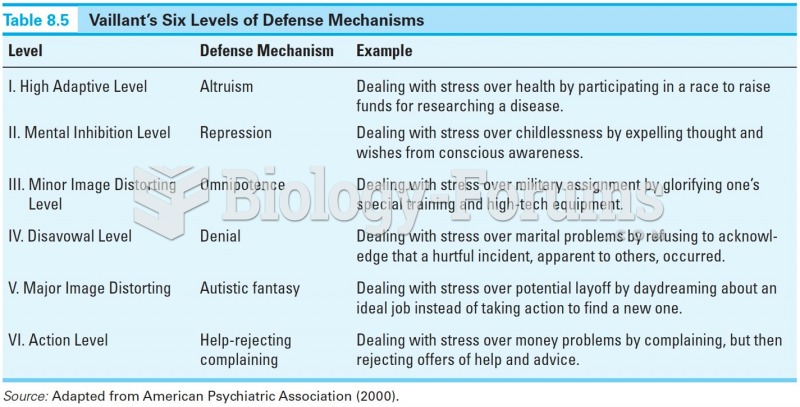Answer to Question 1
Correct Answer: 2
Rationale 1: Digoxin is used for atrial dysrhythmias.
Rationale 2: Excessive levels can produce serious dysrhythmias, since the action of the drug is to decrease the automaticity of the SA node and slow the conduction through the AV node.
Rationale 3: Subtherapeutic levels can cause the atrial dysrhythmia to continue, which can produce symptoms, but might not be life-threatening or fatal.
Rationale 4: Interactions with other medications are common, but not monitored by drug levels.
Global Rationale: Excessive levels can produce serious dysrhythmias, since the action of the drug is to decrease the automaticity of the SA node and slow the conduction through the AV node. Digoxin is used for atrial dysrhythmias. Subtherapeutic levels can cause the atrial dysrhythmia to continue, which can produce symptoms, but might not be life-threatening or fatal. Interactions with other medications are common, but not monitored by drug levels.
Answer to Question 2
Correct Answer: 1
Rationale 1: Blocking potassium, sodium, or calcium ion channels is the primary pharmacologic strategy used to prevent or terminate dysrhythmias.
Rationale 2: Most medications for dysrhythmias shorten the refractory period is incorrect because some drugs for dysrhythmias will increase the refractory period.
Rationale 3: These medications will lower your blood pressure, which will change the rhythm of your heart is incorrect because many antidysrhythmic medications block sodium, potassium and calcium ion channels.
Rationale 4: The mechanism of these drugs is unknown is incorrect because it is known that the main way they work is to block potassium, sodium, or calcium ion channels.
Global Rationale: Blocking potassium, sodium, or calcium ion channels is the primary pharmacologic strategy used to prevent or terminate dysrhythmias. Most medications for dysrhythmias shorten the refractory period is incorrect because some drugs for dysrhythmias will increase the refractory period. These medications will lower your blood pressure, which will change the rhythm of your heart is incorrect because many antidysrhythmic medications block sodium, potassium and calcium ion channels. The mechanism of these drugs is unknown is incorrect because it is known that the main way they work is to block potassium, sodium, or calcium ion channels.







